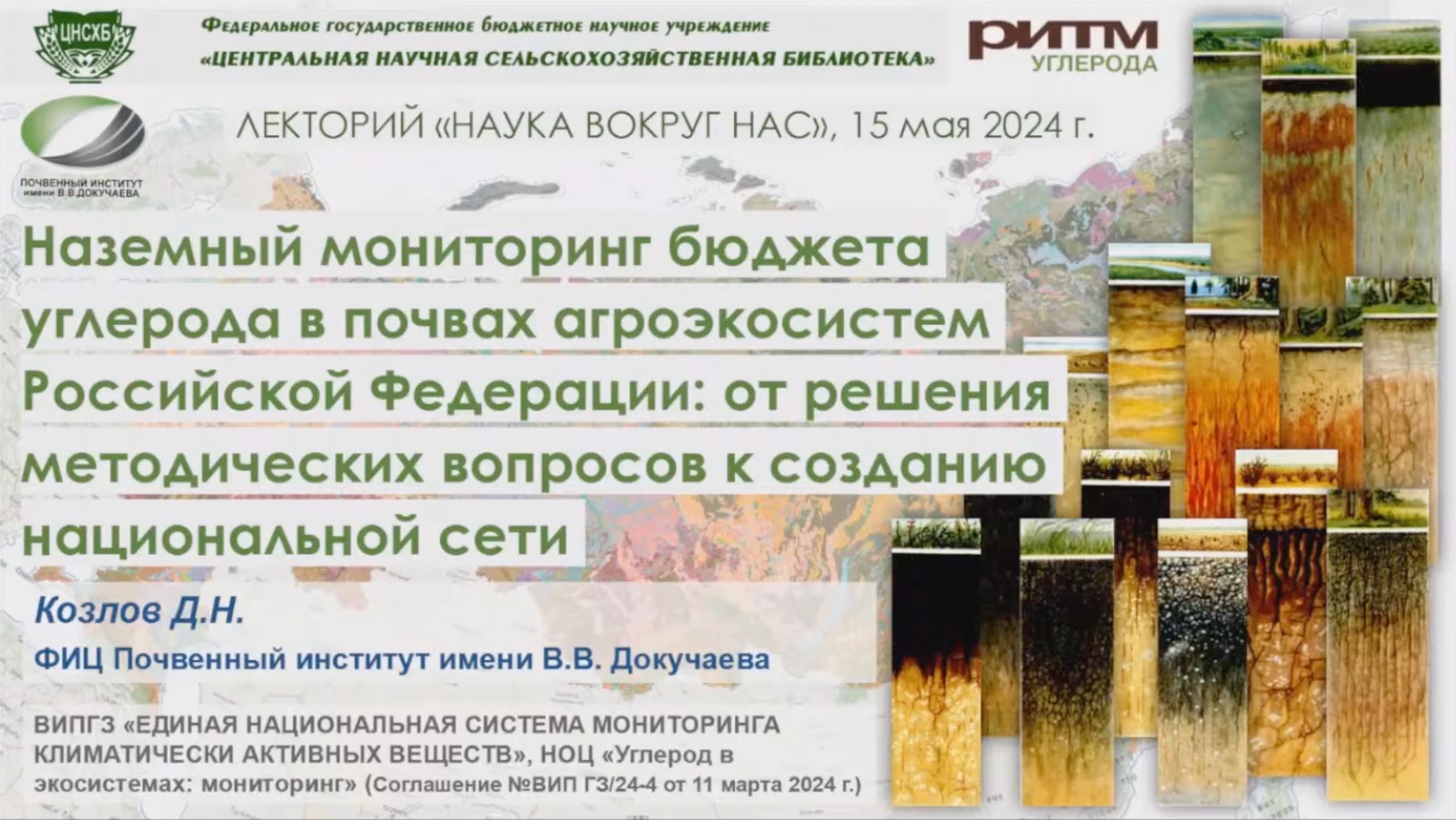
Daniil Kozlov's speech within the framework of the topic "Science around us" in the Central Scientific Agricultural Library
On May 16, 2024 in the Central Scientific Agricultural Library (CSAL) Daniil Nikolaevich Kozlov, PhD in geographical sciences, first deputy director of FRC V.V. Dokuchaev Soil Science Institute spoke on "Terrestrial monitoring of carbon budget in soils of agroecosystems of the Russian Federation: from solving methodological issues to the creation of a national network" within the framework of the lecture "Science around us". Daniil Nikolaevich told us about climate change, the role of the balance of climatically active substances, directions of development of environmental and economic policy of the state, adaptive-landscape farming in the key of carbon-saving technologies, the KIP NI and plans for its implementation until 2030.
Below are the main theses of the report:
- The rate of temperature increase has never been as high as it is now - this indicates the emergence of mechanisms other than the natural evolutionary processes that operated on our planet the previest times. Temperature rise leads to changes in the conditions and patterns of agricultural activity and the strongest effect will be observed in the temperate climate belt, which occupies a significant part of our country's territory.
- The main objectives of implementing international agreements are to slow the growth of average annual temperatures and to adapt ecosystems and economic activities to the expected changes.
- Soils are the main reservoir of carbon, and proper soil management will reduce the emission of carbon dioxide into the atmosphere. This mechanism is realised by humus, a stable organic matter with a complex composition. Different agricultural lands have different rates of mineralization of organic matter: on arable land they are the highest, which corresponds to the highest emission into the atmosphere. Hayfields and fallow lands have lower rates of mineralization due to greater inflow of plant fall into the soil and contribute to accumulation of organic matter in the soil. Annual rotation of different landuse fields helps to minimize emissions.
- Due to the lack of reliable data, the government initiated the Key Innovative project of National Importance (KIP NI), aimed at establishing a monitoring system for climate active substances. It is important to note that building an effective monitoring system is only possible through a combination of ground-based measurements, remote sensing and simulation models
Recording of the broadcast on the CSAL YouTube channel
Timecodes are available in the comments
FRC V.V. Dokuchaev Soil Science Institute is a participant of the consortium "RITM of Carbon" in the work on the project "Russian Climate Monitoring System" (the most important innovative project of national importance, KIP NI, supervised by the Ministry of Economic Development of the Russian Federation).

